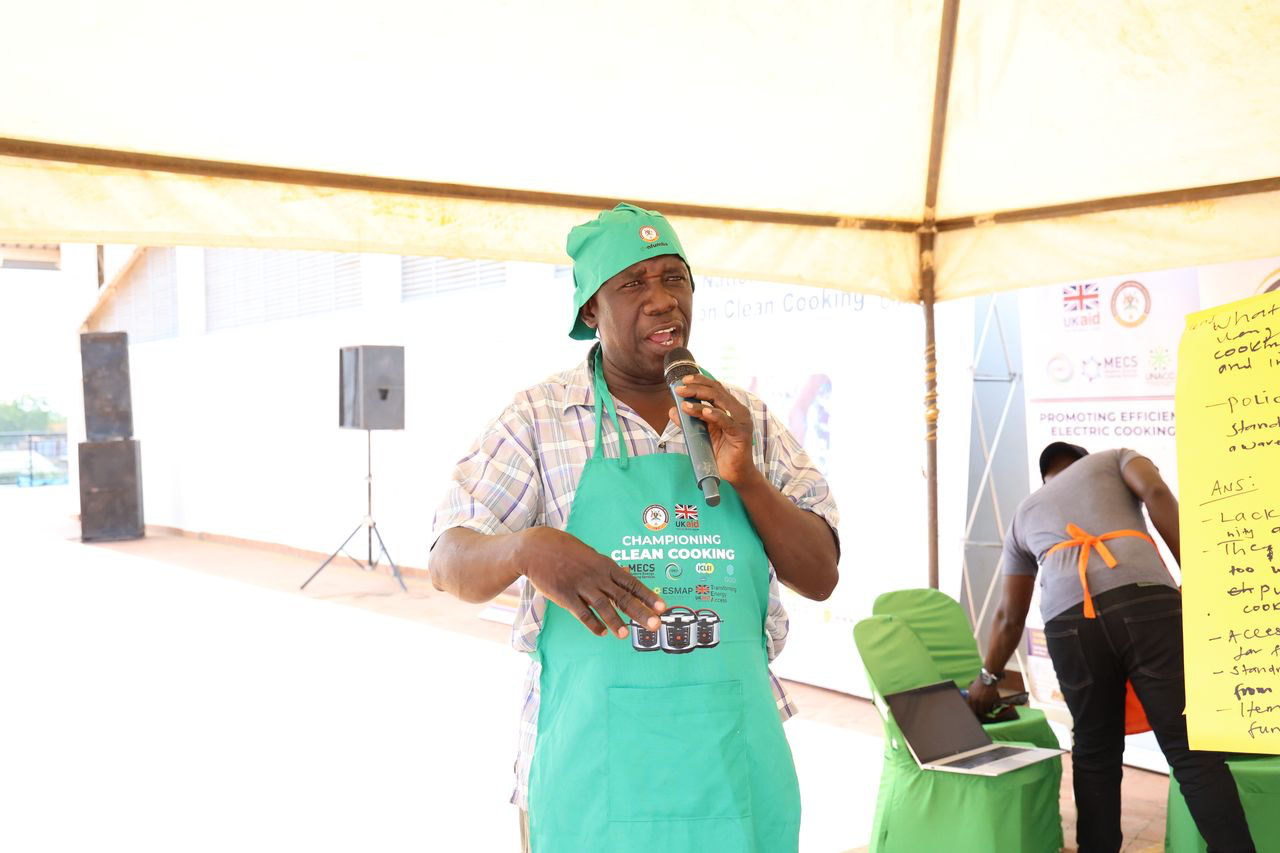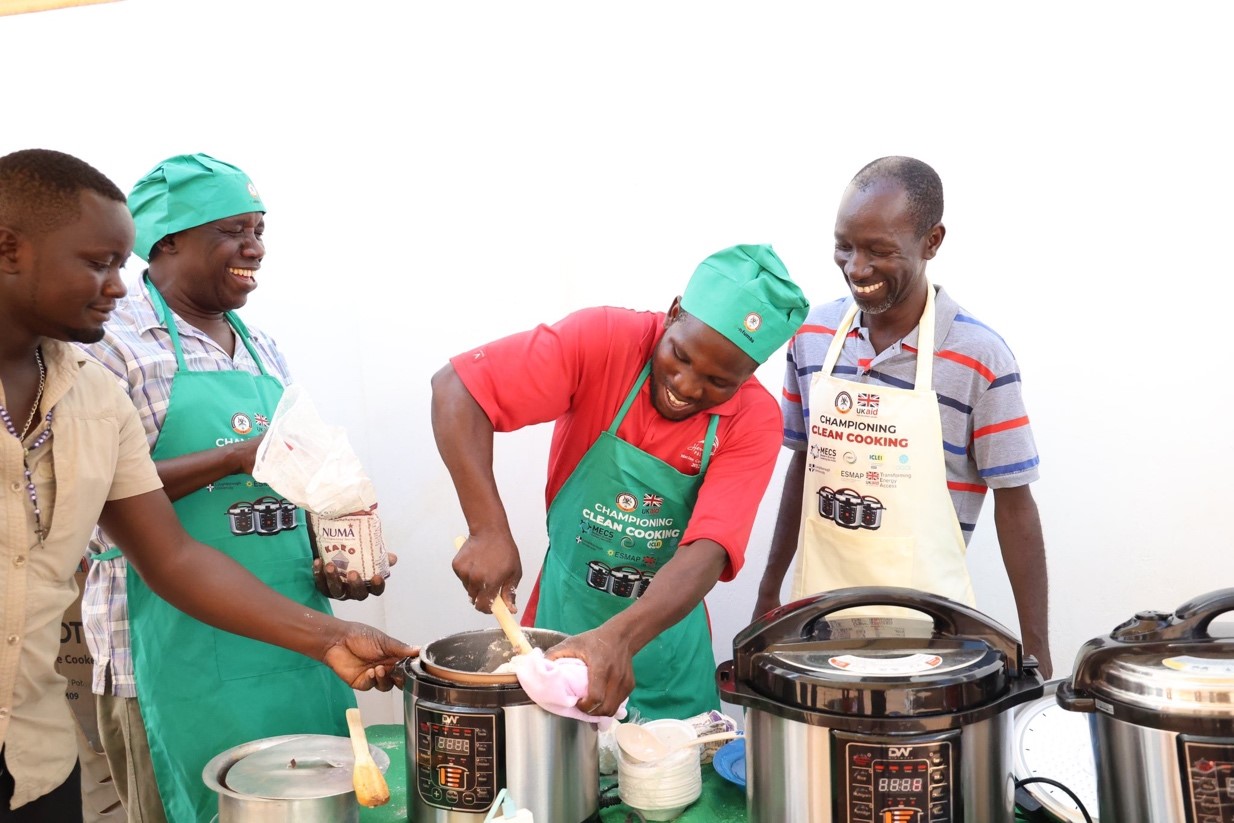The National Renewable Energy Platform (NREP) in partnership with the Ministry of Energy and Mineral Development (MEMD), and funding from the UK Government through the Modern Energy Cooking Services (MECS), accelerated Uganda’s clean cooking transition in Soroti City through another high-impact awareness campaign from 31st March to 4th April 2025, under the Behavioral Change Communication for Electric Cooking (BCCeC) in Uganda Project.
This initiative convened over 100 stakeholders including local government officials, cultural and religious leaders to tackle Uganda’s biomass dependence, which accounts for 88% of household energy use and causes 20,000 annual deaths from indoor air pollution.
The event was graced by Mr. Maxi Muhe, representing Soroti City’s Resident City Commissioner (RCC) Mr. Peter Pex Paak, who emphasized: “Clean cooking isn’t a luxury it’s a lifeline for our communities’ health and environment.”
The campaign trained community champions to drive adoption who, inturn, proposed various strategies to increase adoption of clean cooking through Focus Group Discussions during the workshop.

Key Activities
- Stakeholder Workshop: Over 100 local leaders, academics, and community representatives identified barriers to clean cooking adoption, including high upfront costs, unreliable electricity, and cultural preferences for traditional methods.
- Focus Group Discussions: Participants proposed solutions such as subsidies, capacity-building programs, and awareness campaigns via radio and religious institutions.
- Live Demonstrations: Volunteers cooked local dishes like beef, beans, and kalo using Electric Pressure Cookers (EPCs), showcasing their speed and efficiency. Participants praised the taste and convenience, with many expressing interest in purchasing the technology.
- Exhibitions: Several companies including Ecostove, Detra Energy, Potential Energy and many more displayed clean cooking technologies, including EPCs, solar stoves, and biogas systems, sparking immediate purchase inquiries.

Behavioral Change and Sustainability
The campaign successfully shifted perceptions, with community leaders registering as clean cooking ambassadors. Recommendations included localized communication in Ateso, partnerships with microfinance institutions for affordable payment plans, and policy reforms to reduce tariffs on clean cooking technologies.

Conclusion
The Soroti campaign proved that hands-on experience and community engagement can drive the adoption of clean cooking solutions. By addressing cost, awareness, and supply chain challenges, Uganda can accelerate its transition to sustainable energy and improve public health.


